Moravian at Cutting Edge of Writing Ed
Dr. Crystal Fodrey and Chris Hassay
What is the value of a college education, and how much does it prepare you for the “real” world?
After the all-nighters, final papers, practicums, cups of coffee, and student loans, the hope of each college student is to walk into a job within their field, prepared and confident.
For an English major, confidence in the field means a command of the English language and the written word. The ability to write effectively is the central tenet of any literature education. Pretty obvious.
But what about chemistry?
Many students of the hard sciences would likely rather step in the ring with Conor McGregor than write an extended essay; after all, it would be faster and less painful. I think I would feel the same about writing a lab report and, God willing, I won’t be asked to do one very soon.
Science students, however, are asked to write more in their profession than they may realize, particularly if they’re in the medical field.
Dr. Crystal Fodrey, an assistant professor in the English department at Moravian and director of The Writing-Enriched Curriculum (WEC), has some bad news for those seeking to avoid the written word in the medical profession: “We have identified 12 or 15 genres [of writing] that occupational therapists are asked to produce in the field,” she said.
Furthermore, according to the New York Times, “Paperwork, or documentation, takes up more than a third of a physician’s workday.” This does not include those physicians and researchers who hope to publish in their field; one need only reference any of the major medical journals to see the utility of writing in action.
With so much writing being done across such diverse majors, the questions stands: what can faculty members do to make sure that their undergraduate students, whatever their majors, are given the writing skills they need to be successful on day one?
The answer is WEC, The Writing-Enriched Curriculum, a faculty-driven approach to developing more meaningful writing education across all majors.
Originally developed at the University of Minnesota, the program seeks to enhance the writing experience of undergraduate students by introducing more discipline-relevant writing throughout the curriculum.
No, chemistry students, you won’t be forced to read extra Shakespeare plays (you can breathe now). In fact, nobody is trying to “force” departments to do anything.
“It’s not a top-down initiative,” says Fodrey, “As the director of writing, I’m not coming in and saying, ‘This is the way you have to do it. This is the way you have to teach.’” Instead, departments that cooperate in the program collaborate with the WEC team to create their own writing plans. Students, for their part, can rest assured that experts in the field are still designing their classes.
“That’s one of the great things about WEC in the Moravian context,” says Christopher Hassay, ’17, a graduate student in education who first worked on WEC in his SOAR project during the summer of 2016. “We can foster a close relationship with the other departments and really honor their knowledge, something that wouldn’t be possible at a larger institution.”
WEC has vastly expanded from its first rollout a year-and-a-half ago.
Students in the departments of modern languages, English, and education may have noticed a small note on their syllabi, saying that the class is part of the Writing-Enriched Curriculum already. Chemistry, mathematics, and occupational therapy are next in line.
What does that actually mean for students in those departments?
For one, it means that the students’ writing is collected, compiled, and read by the WEC team as part of its research. All identifying information is stripped from student work, so nobody but you and your professor will ever know that you waited until 2:00 a.m. to start your Hamlet essay. If this still makes you uncomfortable, you can always opt out of the process.
Student focus groups are also constructed, and faculty are interviewed for their feedback.
In fact, interviews are the hub on which the WEC wheel turns. The WEC team and a faculty liaison within the department meet regularly, ensuring that each department’s experience with WEC is individualized and collaborative.
All of this hard work is designed to eventually help departments create their own writing plan: a self-developed contractual agreement within the major that outlines their plan for writing education.
The fundamental change the College can expect to see is a “reconsideration of existing classes,” said Hassay. “Take, for instance, a student who has only done analysis in their freshman classes. Then, they get to their senior seminar and are expected to write something akin to a dissertation. If that genre has never been raised with them before, then it calls to mind how prepared those students are to write in that context.”
More than a few students out there would surely agree with Hassay. Based on my personal experiences and conversations with other students, it’s easy to feel like the writing-intensive courses, let alone senior seminar, are an ambush waiting to happen. Instead of the writing-intensive model, WEC calls for a more integrated approach to writing, so those senior theses don’t take you unaware.
Moving forward, the plan is to expand WEC to additional departments.
With three departments already moving into the implementation of WEC, it’s easy to see how the work that Hassay and Fodrey are doing is going to affect incoming students, and even the underclassmen here today. Graduate students can also expect to see changes thanks to WEC, as Moravian’s program is the only one to address graduate-level studies.
If nothing else, WEC is a great example of how one student and a professor can together change their institution. Hassay and Fodrey started this project as a summer grant, and it has blossomed into a program that will effect real change on our campus.
Hassay has one final message for those students at Moravian already enrolled in the program: “WEC is for them. It is fundamentally built around them and designed to improve their experience.”


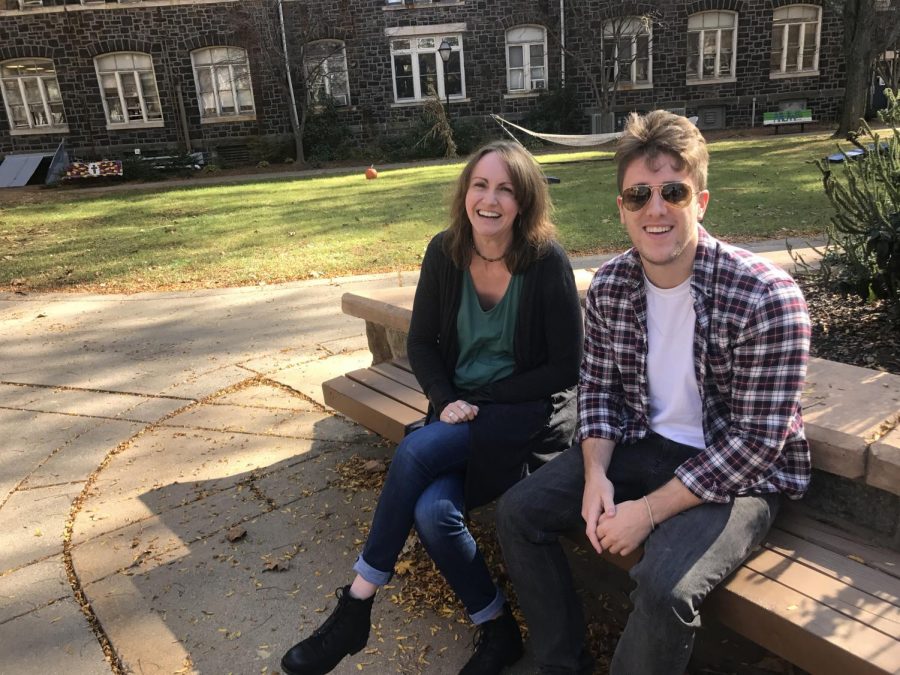
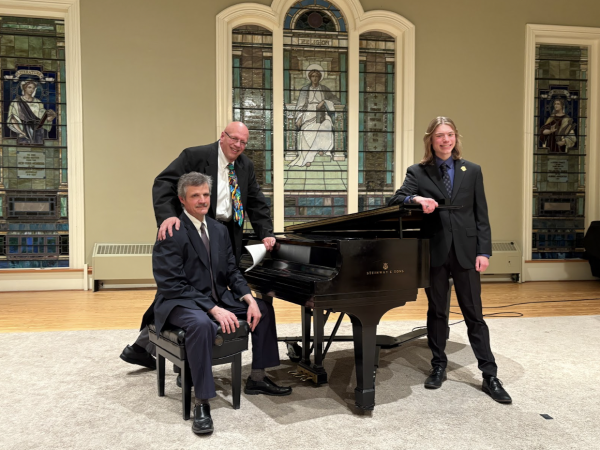
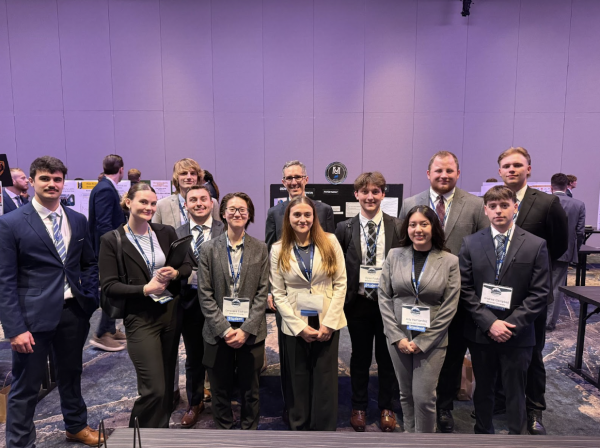

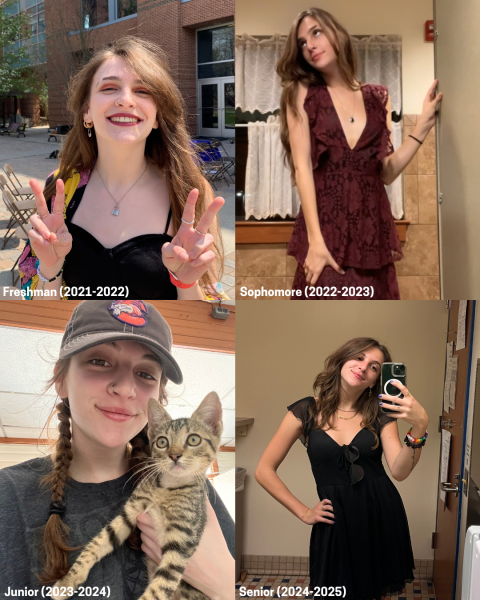
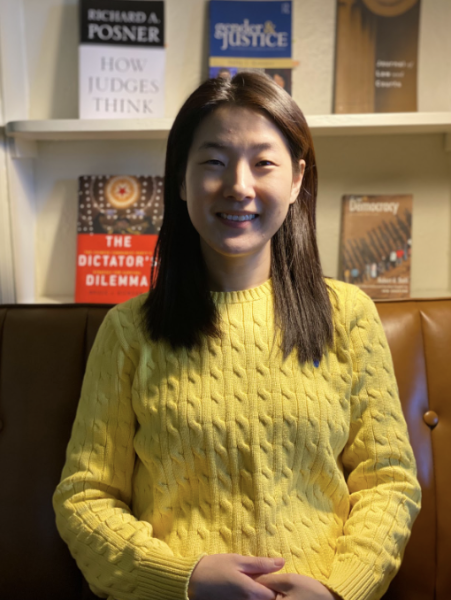
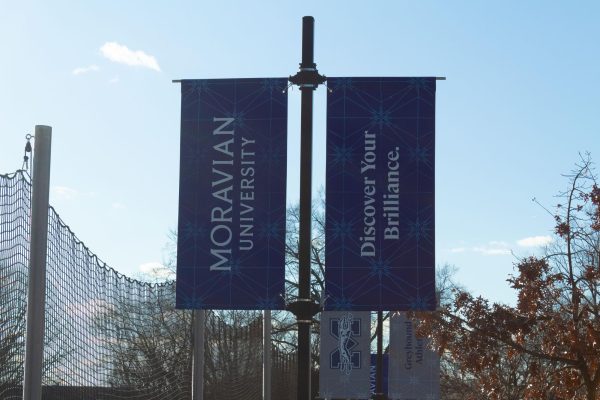




Joyce Hinnefeld • Dec 8, 2017 at 2:00 pm
Great article, Max–thanks for this coverage of the incredibly valuable work that Dr. Fodrey and Chris Hassay are doing!